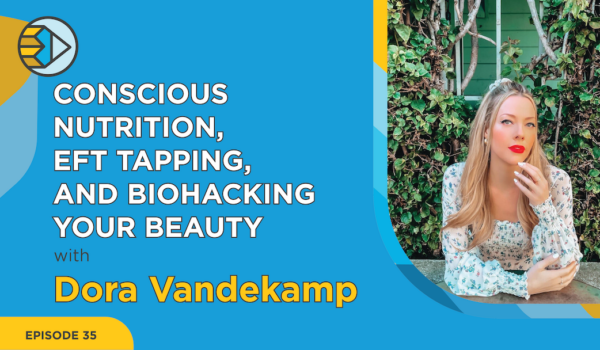
EP 37: 5 Tips for Answering Essay Questions
So you’re taking an exam. You breeze through the first portion of the exam – multiple choice, no problem. The written questions give you a bit more trouble but they are only short answer, not a big deal. However, then you turn to the last page of the exam. Oh no! It is the essay question.
Unlike other questions on a test, essay questions allow you to be in control of your response 100%. Rather than picking from answers that were designated for you, you have the change to show the instructor how well you understand the question. On this Episode we are going to go over how you can demonstrate your knowledge in the next essay question you encounter.
Looking for study tips, help with essay writing, or advice on how to be a better student? Welcome to The Homework Help Show, a weekly show where we teach, assist, and offer valuable insights for student life. From study hacks to writing tips, discussions about student mental health to step-by-step guides on academic writing and how to write a resume, we’ve got you covered. Want your questions answered? Write them below or join the conversation on social media using the hashtag #askHHG
TRANSCRIPT:
Cath Anne: [00:00:00] Hi guys and welcome back to our channel. My name is Cath Anne and this is Episode 37 of the Homework Help Show by Homework Help global.
[00:00:16] So you’re taking an exam you breezed through the first portion of the exam. Multiple choice. No problem. Short answer questions. You got this. However, then you turn to the last page of the exam – and essay question! The essay question is probably the least favorite of all exam questions. With other questions, answers are provided, you have the option of taking a guess if you don’t really know the answer. But with an essay question there is no guessing. It’s all you. You either know it or you don’t. Although you may be daunted by the idea of an essay question you can try thinking about it in another way as the questions allow you to control your response 100 percent. This can allow you to demonstrate your knowledge on this subject. You get to prepare ahead of time. Assuming you did the work and studied the material, we’re going to go over and demonstrate how you can use your knowledge on your next essay question.
[00:01:21] Tip number one: Plan First. During an exam you’re generally working within a time limit. This can be stressful especially if the test requires other components. Whether you encounter an essay question you might be tempted to start writing it right away. However remember the best essay is one that is planned out. So what you can do is you can start by doing a brain dump. Take one piece of paper and do some brainstorming. Write down all that comes to mind on the subject then take that information and create an outline. Using this two step process you will have a basic outline for your essay and a well planned essay is much more effective than one that’s not planned at all. So even though you are doing an exam taking this extra step will help you in the long run and will help you come out with better written essay.
[00:02:21] Number two: use an essay format. When it comes to writing essays especially on a test it is best to use a format. Use the five paragraph essay format. This is a standard way of writing an essay and this will be something that your professor will thank you for. This includes an introduction, three body paragraphs – or as many body paragraphs as you need to make your point – and a conclusion. This is a very simple, straightforward format that you will be familiar with and your professor will be familiar with. By using a format like this you’re saving yourself time and you’re saving your professor’s time when they are doing the marking after the exam.
[00:03:06] Number three: Make your point. Generally when writing an essay you will want to use something called a hook. This is a way to engage your reader and draw them in and tell them what you’re going to be talking about. This might be something like a story or a fact. However in this case when you’re writing an essay for an exam you don’t necessarily have to use a hook. This is because you have a guaranteed audience who is your professor. Begin instead by developing a strong thesis statement and outlining the various points that you will be making throughout the essay. This will allow your instructor to know what to expect. It will save you time and help you to follow your predesignated outline.
[00:03:52] Tip number four: Avoid restating the prompt. When you were writing a thesis statement make sure to avoid restating the prompt that is given by the professor on the exam. This might be tempting because it just seems easier. However it is indicative of lazy and boring writing. This will only go to show your professor that you don’t care very much about the essay question and it won’t bode well for you on the exam. When you’re writing an essay for an exam you want to be creative and show that you can think in a critical way and independently. Be creative, use the notes that you have already written prior to your exam and draw on those to develop a well-rounded essay that is creative and interesting and engaging to the professor.
[00:04:42] Tip number five: end with a strong conclusion. Most writing guidelines suggest that it is best to restate the points that you’ve made throughout as well as to summarize your essay in the conclusion. However this is also indicative of boring writing and it’s an ineffective way to end your essay. Think instead about synthesizing the various points that you have made throughout your exam essay question rather than just simply restating although you’re not trying to prove a new point, you’re going to try to synthesize your points into a well-rounded argument that you have also shown in your essay. Think about it as a way to tie everything together at the end of your essay.
[00:05:28] Let’s go over those points briefly again. Number one: make sure you plan first. Do your brain dump and then do an outline. Number two: use an essay format. 5 Paragraph format is the best to use in this scenario. Number three: Make your point. Make sure that you are getting straight to the point when you begin writing your essay. Number four: avoid restating the prompt. Be creative and write independently. Number 5: end with a strong conclusion that synthesizes all of the points that you’ve made.
[00:06:01] Okay so that’s it for me for this week guys. I hope this video was of benefit and I hope that these tips will be able to help you on essays in your exams. As always if you have any questions please leave them in the comments below. If you want to check out any of our other comment – oh sorry – any of our other content, all of our social media platforms are linked in the description box below. If you like this video please give it a thumbs up and subscribe to our channel so you don’t miss out on any more content. Have a great week guys. Take care. See you soon.
Share:

